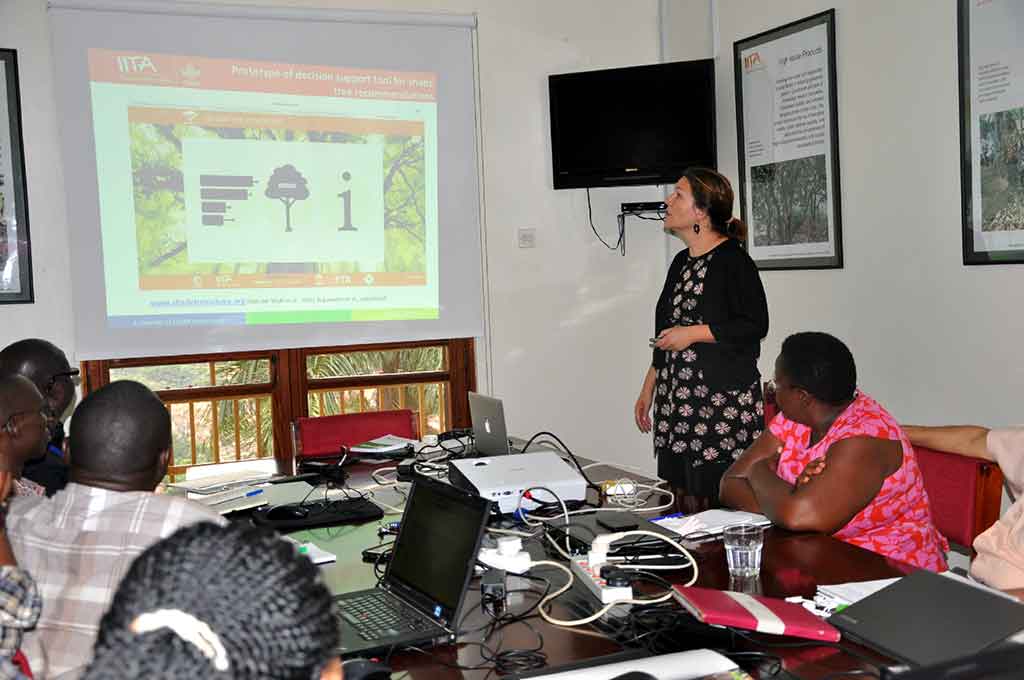
Future of coffee and cocoa farmers under threat from soaring temperatures
The livelihoods of millions of small smallholder farmers growing coffee and cocoa―and foreign exchange of countries dependent on the two crops―are facing a shaky future if the planet continues to get warmer and no urgent action is taken. This was said by IITA scientist Laurence Jassogne at a recent seminar titled “Towards climate smart intensification: IITA’s work in coffee and cocoa-based systems” held at the institute’s office in Uganda.

Speaking to IITA staff and partners, Laurence gave an overview of her research which focuses on climate change and its impact on coffee and cocoa yields in subSaharan Africa.
For example, she said, a recent study she was involved in showed that persistent increases in night-time or minimum temperatures recorded over the past 50 years is responsible for a decline in current coffee yields in Tanzania and probably the rest of East Africa.
Using suitability maps developed by her research team and predictive models based on historical and yield data, Laurence showed how the relationship between climate and the coffee crop will play out in the future. The models estimated that increases in minimum temperatures will shrink coffee productivity in Tanzania by 134 kg/ha by 2050―a loss of US$60 million in foreign export earnings per annum.
Laurence said that the effects of increasing temperatures will lead to a dwindling of suitable areas along the mountain slopes where East Africa’s most important coffee species―the Arabica and Robusta which only thrive in cooler conditions―are cultivated. This development, according to her, may cause farmers to expand cultivation into wildlife reserves further up the mountain slopes with dire consequences for biodiversity and carbon hotspots.
Laurence noted that although climate change threatens coffee and cocoa production, it was just one of many other problems faced by smallholder farmers. She informed the gathering that pests, diseases, gender imbalances in households, low soil fertility, postharvest handling, poor market information and access, inadequate extension services, and a resource-induced unwillingness by farmers to adopt climate smart farming practices are some of the interlinked problems unearthed by her research that contribute to low productivity levels in coffee systems East Africa. Productivity can be boosted if farmers, especially those challenged by inadequate resources, are actively encouraged to adopt climate smart practices and this Laurence said, is the aim of ongoing attempts to partner with finance and private sector players from the coffee and cocoa sector. Laurence concluded her presentation by saying that she hopes to continue to study the impact of climate change on coffee and cocoa, and develop and support the adoption of fertilizer recommendations and climate smart mechanisms for coffee and cocoa that will lead to improved livelihoods in and beyond sub-Saharan Africa in future.
